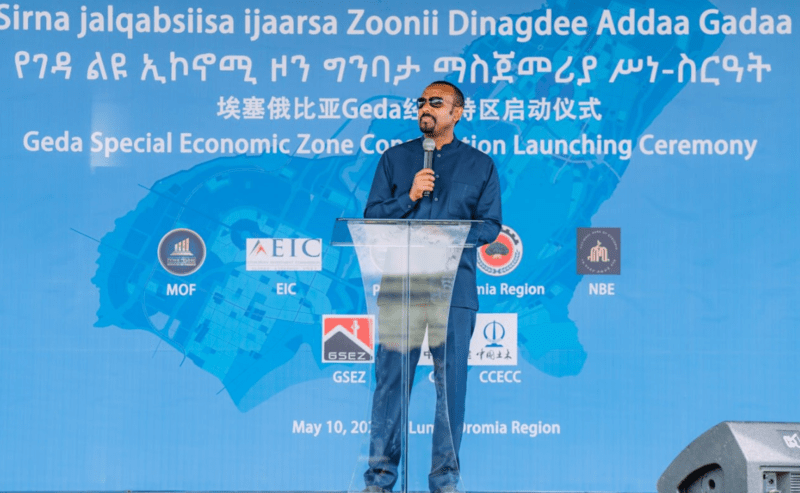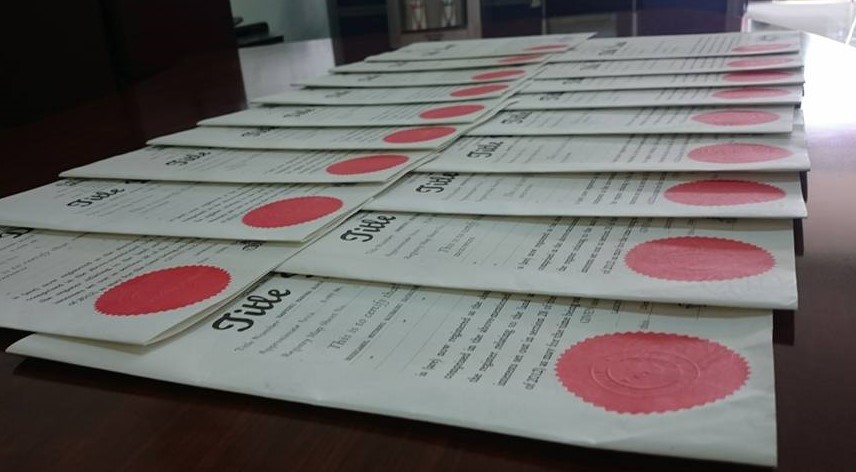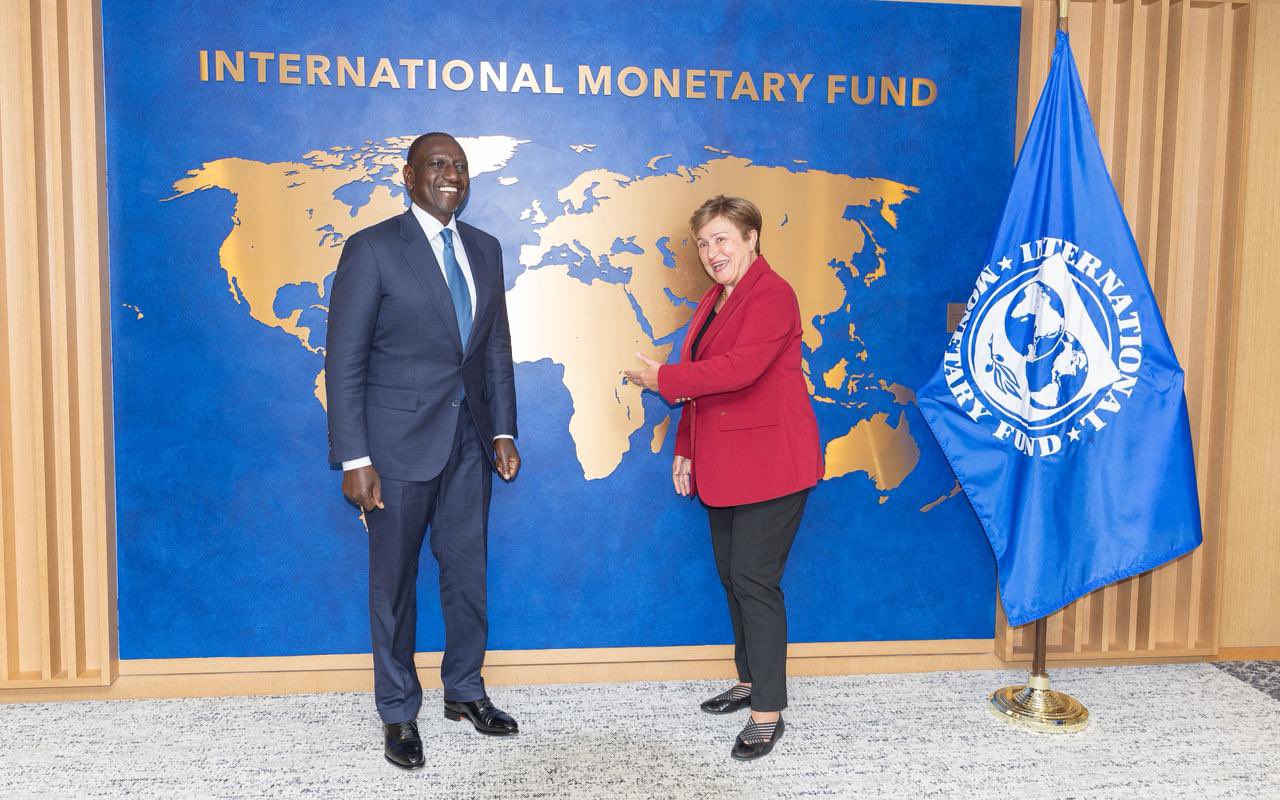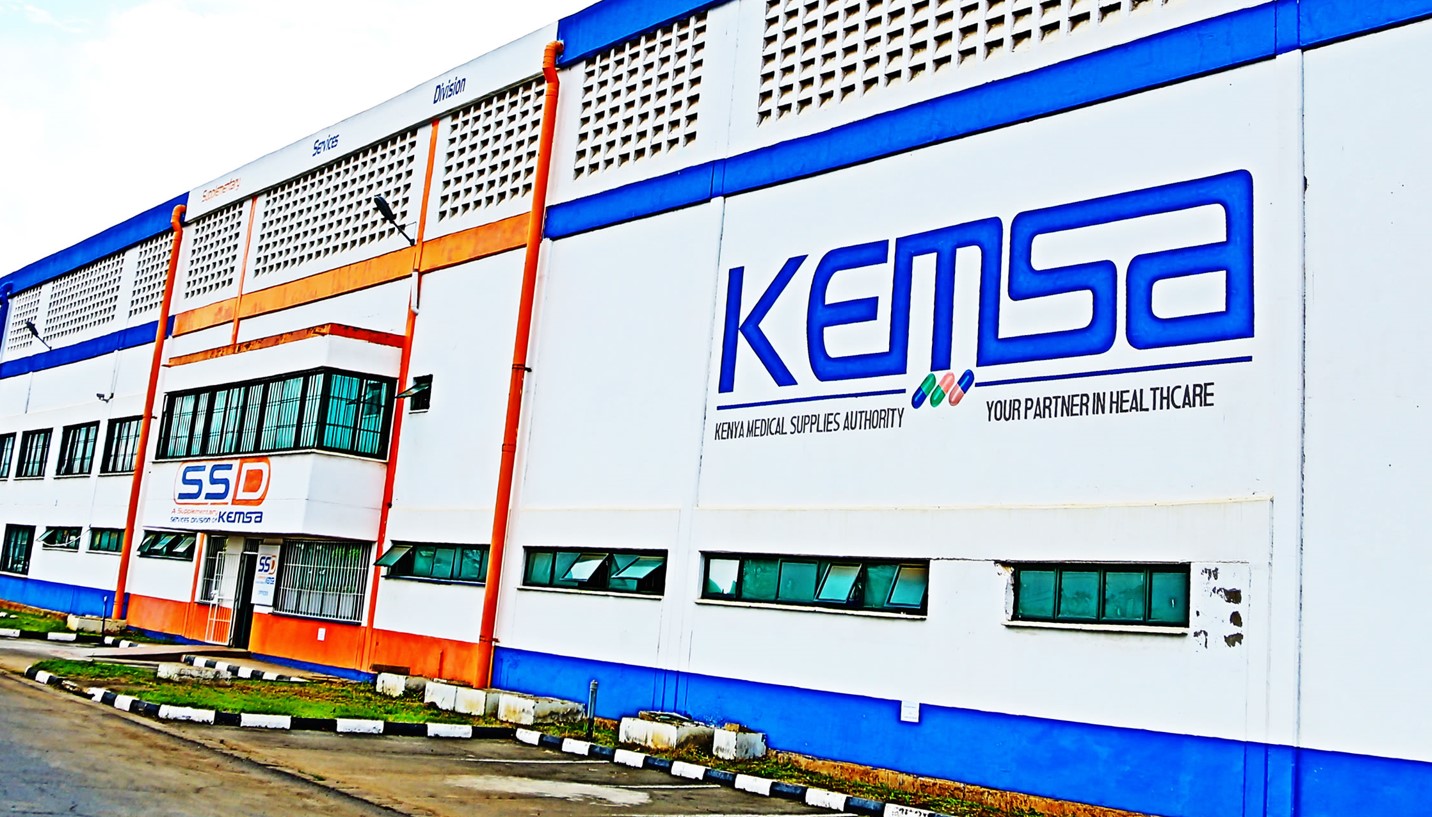PM Abiy launches Gada Special Economic Zone poised to boost Ethiopia economy

Industries such as coffee processing, bamboo and timber processing, machinery manufacturing, and bio-pharmaceuticals are expected to thrive within the zone.
Ethiopia marked a significant milestone in its economic development as construction commenced on the Chinese-contracted Gada Special Economic Zone project in the Oromia region.
During the inauguration ceremony, the Chinese construction giant, China Civil Engineering Construction Corporation (CCECC), inked a memorandum of understanding with Ethiopia's Oromia regional state administration to establish the Lume Free Trade Zone within the Gada Special Economic Zone.
More To Read
- CS Kagwe announces policy overhaul for sugar, tea and miraa to protect farmers’ earnings
- Ethiopia blasts Egypt for escalating hostile rhetoric and rejecting dialogue over Nile waters, GERD
- Factory farming in Africa: Development banks see it as a good idea, but it’s bad for the climate
- AU calls for rapid tech adoption in farming to shield continent from food crises
- CS Kagwe urges bold reforms in agriculture sector as Intergovernmental Agriculture Forum opens in Naivasha
- Kenya wants China to remove tariffs on coffee, tea, avocados as trade imbalance persists
Prime Minister Abiy Ahmed stressed the transformative potential of the Lume Free Trade Zone, envisioning it as a catalyst for Ethiopia's socio-economic progress.
He highlighted its significance as the country's second free trade zone, following the Dire Dawa Free Trade Zone, and explained its role in replicating the successes of Ethiopia's agricultural sector in the industrial domain.
"The Gada Special Economic Zone serves as a pivotal platform to unlock the vast potential of our region and nation," stated Prime Minister Abiy, emphasising the zone's role in generating employment opportunities for the youth and attracting foreign direct investment.
The Lume Free Trade Zone is poised to amplify economic growth and development, according to Abiy, leveraging synergies with other industrial parks in Ethiopia.
Industries such as coffee processing, bamboo and timber processing, machinery manufacturing, and bio-pharmaceuticals are expected to thrive within the zone, fostering innovation and economic diversification.
We aim to replicate the successes of our agricultural sector in the industrial domain, and the Gada Special Economic Zone serves as a pivotal platform to realize this vision, unlocking the vast potential of our region and nation. With the establishment and operation of the Lume… pic.twitter.com/4rgdR5Xog4
— Abiy Ahmed Ali 🇪🇹 (@AbiyAhmedAli) May 10, 2024
Dai Hegen, chairman of China Railway Construction Corporation, the parent company of CCECC, highlighted the commitment to ensuring the success of the Lume Free Trade Zone.
He pledged to integrate cutting-edge technologies and management expertise with local resources to establish a comprehensive free trade zone focused on manufacturing, trade, and research and development.
Motuma Temesgen, director-general of Gada Special Economic Zone, highlighted the strategic location of the free trade zone, situated just 65 km southeast of the capital Addis Ababa.
He outlined the zone's objectives, including boosting exports, establishing a trade logistics centre, and attracting foreign investments, positioning Ethiopia as a hub for trade and investment in the region.
Economic zones, also known as special economic zones (SEZs) or free trade zones (FTZs), are designated areas within a country where business and trade regulations differ from those in the rest of the country.
Governments typically establish these zones to attract investment, promote economic growth, create jobs, and enhance international trade.
Top Stories Today










































